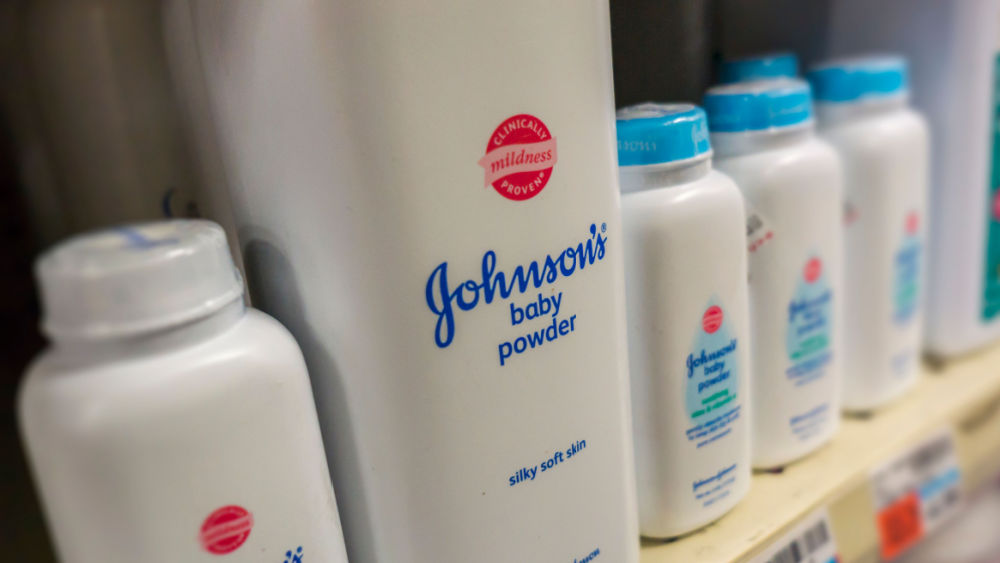Talcum powder, a common household product used for personal hygiene, has been linked to ovarian cancer and other serious health conditions. As a result, there have been numerous lawsuits against talcum powder manufacturers, such as Johnson & Johnson. If you or a loved one has been diagnosed with cancer after using talcum powder products, it’s crucial to understand your legal rights and options. In this comprehensive guide, we’ll explore what you need to know about talcum powder cancer lawsuits, including the legal basis for these claims, the potential damages available, and how to find the right attorney to represent you.
Talcum Powder and Cancer: The Link You Need to Know About
Talcum powder, also known as baby powder, has been a household staple for generations. It is commonly used to treat diaper rash, soothe skin irritation, and absorb moisture. However, recent studies have suggested that talcum powder may be linked to an increased risk of ovarian cancer and other types of cancer.
The controversy surrounding talcum powder and cancer began in the 1970s when researchers discovered talc particles in ovarian tumors. Since then, numerous studies have been conducted to investigate the potential link between talcum powder and cancer. While the results have been mixed, some studies have suggested that long-term use of talcum powder in the genital area may increase the risk of ovarian cancer.
As a result, many women have filed talcum powder cancer lawsuits against Johnson & Johnson, the largest manufacturer of talcum powder products. These lawsuits allege that Johnson & Johnson knew about the potential cancer risk associated with talcum powder but failed to warn consumers. In 2018, a jury awarded $4.7 billion to 22 women who claimed that Johnson & Johnson’s talcum powder products caused their ovarian cancer.
If you or a loved one has been diagnosed with ovarian cancer or another type of cancer and have a history of using talcum powder, you may be eligible to file a talcum powder cancer lawsuit. It is important to speak with an experienced personal injury attorney who can help you understand your legal options and fight for the compensation you deserve.
Understanding Talcum Powder Cancer Lawsuits: A Comprehensive Guide
Talcum powder cancer lawsuits have been making headlines for years. These lawsuits are filed by individuals who have been diagnosed with cancer, allegedly caused by the use of talcum powder products. If you or a loved one has been affected by talcum powder and are considering legal action, it’s important to understand the basics of these lawsuits.
Talcum powder, also known as baby powder, has been used for decades by people of all ages. It is widely used to absorb moisture and reduce friction, making it a popular choice among parents for diaper changes and other personal hygiene purposes. However, studies have found a potential link between talcum powder and cancer.
The main issue in these lawsuits is whether talcum powder products are carcinogenic, meaning they can cause cancer. Some studies suggest that the use of talcum powder in the genital area may increase the risk of ovarian cancer in women. Other studies have found a potential link between talcum powder and lung cancer when the powder is inhaled.
Several major talcum powder manufacturers, such as Johnson & Johnson, have faced thousands of lawsuits alleging that their products caused cancer. In some cases, juries have awarded large settlements to plaintiffs. However, these cases can be difficult to prove, and it’s important to work with an experienced attorney to determine the best legal strategy.
The Risks Associated with Talcum Powder Use and Cancer
Talcum powder has been a popular personal care product for decades, used by millions of people on a daily basis. However, recent studies have raised concerns about the potential link between talcum powder use and cancer.
The main risk associated with talcum powder is that it may contain asbestos, a known carcinogen. Asbestos is a naturally occurring mineral that has been used in a variety of industrial and commercial products, including talcum powder. When inhaled, asbestos fibers can accumulate in the lungs and increase the risk of lung cancer and other respiratory diseases.
In addition to asbestos, talcum powder itself has been linked to an increased risk of ovarian cancer in women. This is due to the fact that talc particles can travel up the reproductive tract and become lodged in the ovaries, leading to inflammation and the development of cancerous cells.
The use of talcum powder on infants and young children is also a concern, as it can cause respiratory issues if the powder is inhaled. In some cases, this can lead to serious lung damage or even death.
Many talcum powder cancer lawsuits have been filed in recent years, with plaintiffs alleging that manufacturers failed to warn consumers of the potential risks associated with talcum powder use. Some of these lawsuits have resulted in multi-million dollar settlements for plaintiffs.
If you or a loved one has been diagnosed with cancer after using talcum powder, it may be worth speaking with an attorney to explore your legal options. Additionally, it is important to be aware of the
Talcum Powder Cancer Lawsuits: What You Need to Know
Talcum powder has been a popular personal care product for decades, but recent studies have linked its use to an increased risk of ovarian cancer. As a result, many women have filed talcum powder cancer lawsuits against manufacturers claiming that they failed to warn them of the potential risks.
If you or someone you know has been diagnosed with ovarian cancer after using talcum powder, it is important to know your legal rights. This comprehensive guide will provide you with all the information you need to know about talcum powder cancer lawsuits.
What is Talcum Powder?
Talcum powder is made from talc
How Talcum Powder Use Can Lead to Cancer and What You Can Do About It
Talcum powder, also known as baby powder, has been a household staple for decades. It is commonly used to absorb moisture and prevent rashes on babies’ delicate skin. However, recent studies have linked talcum powder use to cancer, specifically ovarian cancer and mesothelioma. In this comprehensive guide, we will explore the link between talcum powder and cancer, the lawsuits that have been filed, and what you can do if you have been affected.
The Link Between Talcum Powder and Cancer:
Talcum powder is made from talc, a mineral that is composed of magnesium, silicon, and oxygen. When talc is mined, it can be contaminated with asbestos, a known carcinogen. Asbestos is a group of minerals that can cause cancer when inhaled or ingested. While talcum powder sold in the US is supposed to be asbestos-free, there is still concern about the purity of talc used in these products.
Ovarian Cancer:
Several studies have found a link between talcum powder use and ovarian cancer. When talcum powder is applied to the genital area, talc particles can travel up the reproductive tract and into the ovaries. Over time, this can cause inflammation and lead to the development of cancerous cells. Women who use talcum powder on a regular basis are at a higher risk of developing ovarian cancer.
The Connection Between Talcum Powder and Ovarian Cancer: A Comprehensive Guide
Talcum powder is a popular product used by millions of people around the world. It is made from talc, a mineral composed mainly of magnesium, silicon, and oxygen. Talcum powder is commonly used to absorb moisture and reduce friction. It is used in a wide range of products, including baby powder, cosmetics, and personal hygiene products.
However, talcum powder has been linked to ovarian cancer. Many studies have found that women who use talcum powder regularly in their genital area have a higher risk of developing ovarian cancer. The powder can travel up the reproductive tract and into the ovaries, where it can cause inflammation and damage to the cells.
As a result, there have been many talcum powder cancer lawsuits filed against the manufacturers of talc-based products. These lawsuits allege that the companies knew about the potential risks of their products but failed to warn consumers.
If you or a loved one has been diagnosed with ovarian cancer and have used talcum powder products, you may be eligible to file a talcum powder cancer lawsuit. It is important to speak with an experienced talcum powder cancer lawyer who can help you understand your legal options.
In addition to filing a lawsuit, there are other steps you can take to protect your health. If you use talcum powder, consider using an alternative product that does not contain talc. You can also speak with your doctor about your risk of ovarian cancer and get regular screenings.
Talcum Powder Cancer Lawsuits: What You Need to Know About Filing a Claim
Talcum powder has been a popular personal hygiene product for decades, but recent studies have linked it to an increased risk of ovarian cancer. As a result, many women who have developed ovarian cancer after using talcum powder are filing lawsuits against the manufacturers of these products.
If you or a loved one has been diagnosed with ovarian cancer after using talcum powder, you may be entitled to compensation for your medical expenses, lost wages, and pain and suffering. However, filing a talcum powder cancer lawsuit can be a complex process, and it’s important to understand your legal rights and options before taking action.
To file a talcum powder cancer lawsuit, you will need to work with an experienced attorney who can help you gather evidence, file court documents, and negotiate with the defendants. Your attorney will also be able to advise you on the best course of action based on your individual circumstances and the strength of your case.
There are several factors that can affect the outcome of a talcum powder cancer lawsuit, including the type and severity of your cancer, the amount of exposure you had to talcum powder, and the strength of the evidence linking talcum powder to ovarian cancer. Your attorney will be able to evaluate these factors and help you determine whether you have a strong case.
If you do decide to file a talcum powder cancer lawsuit, it’s important to act quickly. There are strict deadlines for filing these types of lawsuits, and waiting too long can result in your case being dismissed.
See – CUCHD Blackboard Login

Thomas Jackson is a dynamic and talented content writer at WonderWorldSpace.com, renowned for his engaging and informative articles. Beyond his professional pursuits in writing, Jack is also known for his deep passion for fitness, which not only shapes his lifestyle but also influences his work.


